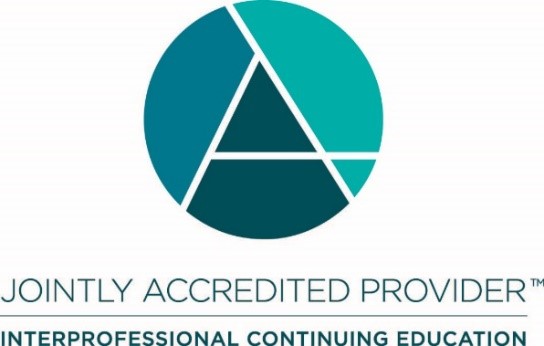NCCN Guidelines® Insights - Genetic/Familial High-Risk Assessment: Colorectal, Version 1.2021
Identifying individuals with hereditary syndromes allows for timely cancer surveillance, opportunities for risk reduction, and syndrome-specific management. Establishing criteria for hereditary cancer risk assessment allows for the identification of individuals who are carriers of pathogenic genetic variants. The NCCN Guidelines for Genetic/Familial High-Risk Assessment: Colorectal provides recommendations for the assessment and management of patients at risk for or diagnosed with high-risk colorectal cancer syndromes. The NCCN Genetic/Familial High-Risk Assessment: Colorectal panel meets annually to evaluate and update their recommendations based on their clinical expertise and new scientific data. These NCCN Guidelines Insights focus on familial adenomatous polyposis (FAP)/attenuated familial adenomatous polyposis (AFAP) syndrome and considerations for management of duodenal neoplasia.
Target Audience
This activity is designed to meet the educational needs of oncologists, nurses, pharmacists, and other healthcare professionals who manage patients with cancer.
Learning Objectives
Upon completion of this activity, participants will be able to:
- Integrate into professional practice the updates to NCCN Guidelines for Genetic/Familial High-Risk Assessment: Colorectal
- Describe the rationale behind the decision-making process for developing the NCCN Guidelines for Genetic/Familial High-Risk Assessment: Colorectal
NCCN Continuing Education Disclosure Policy
It is the policy of NCCN that every 12 months, all faculty, moderators, activity planners and all internal planning staff participating in NCCN continuing education activities are expected to disclose any financial relationships with a commercial interest. In addition, all faculty presentations have been reviewed to ensure education is fair and balanced and that clinical content presented supports safe, effective patient care. Individuals who do not disclose relevant financial relationships will be disqualified from involvement in the CE activity as a content developer, planner, or presenter.
Definitions
NCCN continuing education considers financial relationships to create a conflict of interest when an individual has both a financial relationship with a commercial interest and the opportunity to affect continuing education content about the products or services of a commercial interest with which he/she has a financial relationship.
NCCN continuing education considers relevant financial relationships as financial relationships in any amount occurring within the past 12 months that create a conflict of interest. NCCN does not set a minimal dollar amount for relationships to be significant. Inherent in any amount is the incentive to maintain or increase the value of the relationship.
Faculty Disclaimers
All faculty for this continuing education activity are competent in the subject matter and qualified by experience, training, and/or preparation for the tasks and methods of delivery.
Faculty presentations may include discussion of off-label use. Faculty will disclose that the use in question is not currently approved by the FDA per the product labeling.
The NCCN staff listed below discloses no relevant financial relationships:
Kerrin M. Rosenthal, MA; Kimberly Callan, MS; Genevieve Emberger Hartzman, MA; Erin Hesler; Kristina M. Gregory, RN, MSN, OCN; Rashmi Kumar, PhD; Karen Kanefield; and Kathy Smith.
Individuals Who Provided Content Development and/or Authorship Assistance:
Jennifer M. Weiss, MD, MS, Panel Vice Chair, has disclosed receiving grant/research support from Exact Sciences.
Samir Gupta, MD, Panel Chair, has disclosed serving as a scientific advisor for Cellmax, Freenome, and Guardant; and receiving grant/research support from Epigenomics and Freenome.
Carol A. Burke, MD, has disclosed serving as a consultant for SLA Pharma and Freenome; and receiving grant/research support from Freenome, Emtora Biosciences, and Janssen Pharmaceuticals.
Susan D. Darlow, PhD, Oncology Scientist/Medical Writer, NCCN, has disclosed that she has no relevant financial relationships.
Mary A. Dwyer, MS, CGC, Director, Guidelines Operations, NCCN, has disclosed that she has no relevant financial relationships.
Mallory Campbell, PhD, Oncology Scientist/Medical Writer, NCCN, has disclosed no relevant financial relationships.
Click here to view all of the conflicts of interest for the panel.

In support of improving patient care, National Comprehensive Cancer Network (NCCN) is jointly accredited by the Accreditation Council for Continuing Medical Education (ACCME), the Accreditation Council for Pharmacy Education (ACPE), and the American Nurses Credentialing Center (ANCC), to provide continuing education for the healthcare team.
Physicians
NCCN designates this journal-based CME activity for a maximum of 1.0 AMA PRA Category 1 Credit™. Physicians should claim only the credit commensurate with the extent of their participation in the activity.
Nurses
NCCN designates this educational activity for a maximum of 1.0 contact hour.
Pharmacists
NCCN designates this knowledge-based continuing education activity for 1.0 contact hour (0.1 CEUs) of continuing education credit. UAN: JA4008196-0000-21-013-H01-P
Physician Assistants
NCCN has been authorized by the American Academy of PAs (AAPA) to award AAPA Category 1 CME credit for activities planned in accordance with AAPA CME Criteria. This activity is designated for 1.0 AAPA Category 1 CME credit. Approval is valid until October 10, 2022. PAs should only claim credit commensurate with the extent of their participation.
Available Credit
- 1.00 AAPA Category 1 CME credit
- 1.00 ACPE contact hours
- 1.00 AMA PRA Category 1 Credit™
- 1.00 ANCC contact hours
- 1.00 Participation
Required Hardware/software
To access this activity, users will need:
- A device with an Internet connection
- Adobe Reader or other PDF reader software for article and certificate viewing/printing

 Facebook
Facebook X
X LinkedIn
LinkedIn Forward
Forward